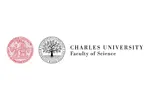

Czech Republic (the)
Visit course webpageParasitic protists are important both for humans and wildlife, and as such they are readily studied, not only as disease agents but as models of host-parasite interactions as well. Two main groups of dixenous avian blood parasites occur in wild avian hosts; haemosporidians and coccidia (Apicomplexa), and trypanosomes (Kinetoplastea). The aim of the project is to study the occurrence (prevalence, diversity), dynamics (at which age the birds get infected?), persistence (do individual hosts retain their infection status?) of haemoproteid genera Plasmodium, Haemoproteus, Leucocytozoon, blood coccidium Lankesterella, as well as Trypanosoma spp., all of which occur in our model passerine populations with high prevalences. Parasite persistence in infected hosts may be critical for parasite sustainability in host populations. In temperate regions, parasites must persist in birds during the non-transmission season when vectors are unavailable; or they must be imported from wintering grounds. By comparing different host and parasite species, we can assess the impact of avian life history traits as well as that of the transmitting vectors on the relative distribution of different parasite genera. Studying multiple species with different life-history traits at a single locality ensures similar exposure to bloodsucking vectors. Different diagnostic techniques (PCR, microscopy, culture) will be used in parallel to minimize sampling bias. The study should contribute to our knowledge of the key factors that enable the evolutionary success of avian blood parasites.
The candidate should be prepared for extensive field work during the breeding season. Basic knowledge of PCR, construction of phylogenetic trees, and statistical methods used in biology are welcomed.
Five relevant publications of the research group:
Svobodov
Learn more about How host life history traits afect infection dynamics and persistence of avian blood parasites, PhD - at Faculty of Science, Charles University
Visit course webpageContact Faculty of Science, Charles University to find course entry requirements.
This text facilitates quick navigation of the various types of scholarships but does not provide a full list of rules and policies regulating this field. The granting and payments of scholarships is governed primarily by the Scholarships and Bursaries Rules of Charles University (cuni.cz/UKEN-727.html), the Rules for Granting Scholarships at FSc, and the relevant measures issued by the Dean (natur.cuni.cz/fakulta/studium/bc-nmgr/predpisy-a-poplatky/stipendia; Czech only).
Students may obtain the following scholarships:
Certain scholarships are granted to students automatically (without student applications), whereas others are granted further to an application (electronic or paper, depending on the type of scholarship). Bursaries are neither taxed nor included in stated income. You can find answers to frequently asked questions regarding scholarships on the Faculty website (natur.cuni.cz/fakulta/studium/helpdesk/faq-stipendia; Czech only).
For more information check our dedicated website.
There are 136 other courses listed from Faculty of Science, Charles University. A selection of these are displayed below:
A postdoctoral position to study thermal effects in landslides Postdoc
Faculty of Science, Charles University
Find out moreActivation of STING signaling in tumors associated with human papillomaviruses PhD
Faculty of Science, Charles University
Find out moreAdvanced Electron Microscopy Techniques for the Characterization of Tunable Zeolitic Architectures PhD
Faculty of Science, Charles University
Find out moreAmphiphilic Peptidomimetics Containing Metallacarboranes as a Design Strategy for Future Antibiotics PhD
Faculty of Science, Charles University
Find out moreSee other universities in Prague
Find out more about studying in Czech Republic (the)